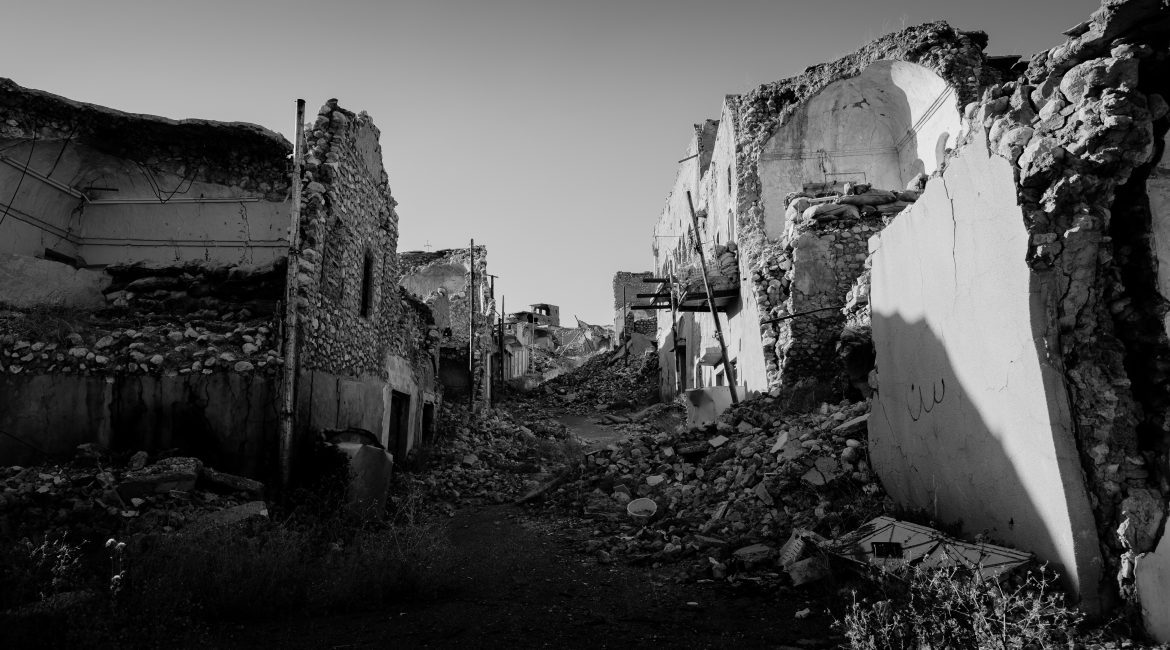Negotiations attempting to obtain the release of prisoners and hostages must be accompanied by the search for political solutions. An alternation at the head of the Israeli executive should facilitate the search for lasting peace, but there is no guarantee that Netanyahu's possible successors will be more pragmatic than him, especially since armed settlers will refuse anything that calls their presence into question. Symmetrically, the designation of a successor at the head of the Palestinian Authority is a prerequisite for any lasting solution.
Among the other unknowns is Biden's ability during the electoral period to understand the need to stop armed clashes at a time when the two protagonists see the chances of a 'total victory' fading. Israel is faced with difficult choices: if the Jewish state wants to carry against Hamas blows decisive enough to permanently break its capacity to endanger its security, it will be necessary for him to continue heavy military operations for a long time. Furthermore, how can Israel continue like this without accumulating more destruction, civilian casualties and losses among the hostages? If neighboring countries refuse to welcome a mass of expelled Palestinians, what should happen with the population locked in the field of ruins?
Of course, in the long term, Netanyahu's political future is very uncertain. For its part, even militarily defeated, Hamas will not disappear and will survive in one way or another. However, he will also find himself faced with delicate choices for his future.
Finally, will the Americans Administration be able to impose the two-state solution on a restive Hebrew state? In the meantime, Biden is increasing his efforts (despite the weight of Congress and his electoral imperatives) to get Israel to agree to humanitarian pauses and prepare a “day after” plan, as Washington (as well as other capitals) have been pressing Netanyahu for a long time to clarify his intentions for the post-military phase.
In this uncertain period, Tel Aviv also have to monitor the increased risks of a frontal conflict with Hezbollah. Israel is concerned about the group's growing atacks, as Biden presses Netanyahu to complete his operations to liquidate Hamas by the end of 2023, a deadline the Israeli prime minister is neither willing nor able to meet. Meanwhile, Washington is working to dissuade Iran and Hezbollah (notably through the presence of two aircraft carriers, accompanied by strong warnings transmitted to Tehran) from expanding the battlefield to other areas. However, it appears that Israel plans to massively strike Hezbollah, as much to "punish" it for its interventions in the north as to put a definitive end to the vulnerability resulting from its formidable military capabilities. Obviously, such a strike would risk causing a conflagration that the West wants to avoid. If the Israeli Prime Minister ignores the advice of moderation, he risks on the one hand creating this explosion which could not only affect his relationship with the United States, but also increase his vulnerability and, on the other hand, to damage its relations with its Arab partners, including Riyadh, and the signatories of the Abraham Accords.
Above all, if the IDF strikes a large-scale blow against Hezbollah, this risks leading to military intervention by Iran, which will immediately trigger Israeli and American strikes on the Islamic Republic.
As operations to search for and eradicate Hamas fighters continued, Israeli Defense Minister Yoav Gallant told Biden security adviser Jake Sullivan that eliminating Hamas could take "several month", while Netanyahu affirmed to the latter that he wanted to continue the fight until victory, while Washington is increasingly concerned about the growing number of civilian victims.
In this tense context, a strange statement from Mousa Abu Marzouk, a member of the political leadership of Hamas, aroused surprise and perplexity: he indicated that the movement “will respect the commitments made by the PLO” of which he wishes to be part, and in particular the recognition of the State of Israel by the latter. However, a few hours after making these remarks, Marzouk wanted to clarify what he described as a “misunderstanding”: “There is a misunderstanding in my statements to the media: I emphasize that Hamas does not recognize the legitimacy of Zionist occupation and refuses any compromise on the rights of our Palestinian people. We affirm that resistance continues until the liberation and return (of the Palestinians).”
This incident attests to the existence of questions and perhaps internal disagreements within the movement due not only to the heavy losses suffered by it and Israel's determination to eliminate as much as possible its military apparatus, but also to remove it from any responsibility for the future of Gaza and the entire Palestinian territory.

